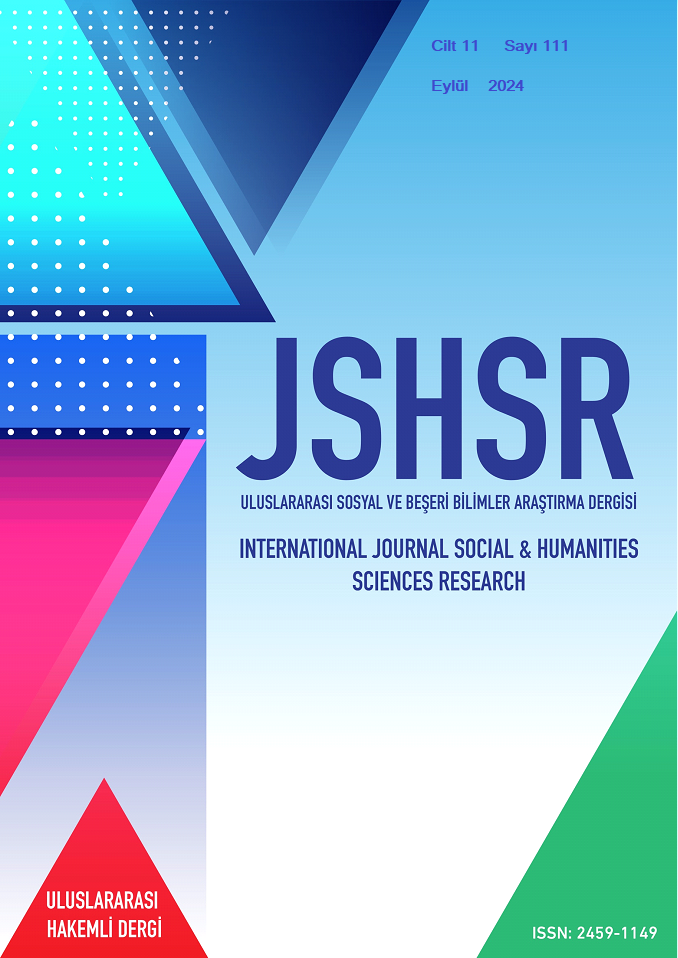The Epistemological Framework of the Relationship Between Music and Knowledge
DOI:
https://doi.org/10.5281/zenodo.13864137Keywords:
Musical epistemology, Musical knowledge, Active listening, Passive listening, Meaning in music, Musical comprehensionAbstract
The aim of this article is to examine the epistemological relationship between music and knowledge. To this end, it focuses on the possibility of musical knowledge within the framework of movements such as rationalism, empiricism, and intuitionism. Even if musical knowledge cannot be explained by propositional knowledge, the images left in the mind by the sensory field have a profound effect on human cognition. This study examines the nature of artistic knowledge, which has been questioned since Ancient Greece, together with modern epistemological theories. Musical knowledge is evaluated in the context of cognitive, affective, and intuitive processes in the light of epistemological discussions in the historical process. The study argues that musical knowledge can offer a richer and more complex perspective than traditional epistemology allows.
In addition, the article investigates the possibility of musical knowledge within the listening process by distinguishing between cognitive (active) and non-cognitive (passive) modes of interaction. While active listening, guided by metacognitive processes, involves deeper understanding through structured interpretation, passive listening evokes more intuitive and emotional responses. But both approaches show that music can convey information in ways that challenge the strict boundaries of rationalist and empiricist thought. The article concludes that the musical information that emerges from the interaction between the listener and the musical composition contributes significantly to our understanding of cognitive experience.
References
Audi, R. (2010). Epistemology: A contemporary introduction to the theory of knowledge (3rd ed.). Routledge.
Baumgarten, A. G. (1961). Aesthetica. G. Olms.
Chrysander, F. (1862). Jahrbuch für musikalische Wissenschaft. Druck und Verlag Von Bretikopf & Härtel.
Curley, E. M. (1984). The collected writings of Spinoza (Vols. 1–2). Princeton University Press.
Descartes, R. (2020). Discourse on the method (J. Veitch, Trans.). Karbon. (Original work published 1637)
Elgin, C. Z. (2020). Understanding art. In V. Granata & R. Pouivet (Eds.), Épistémologie de l'esthétique (pp. 139–150). Presses Universitaires de Rennes.
Gadamer, H.-G. (1976). Philosophical hermeneutics (D. E. Linge, Trans.). University of California Press. (Original work published 1967)
Gadamer, H.-G. (1983). Reason in the age of science (F. G. Lawrence, Trans.). MIT Press. (Original work published 1976)
Gadamer, H.-G. (1991). Wahrheit und methode (H. Arslan & İ. Yavuzcan, Trans.). Paradigma Yayınları. (Original work published 1965)
Goodman, N. (1997). The philosophy of Nelson Goodman. Garland Publishing, Inc.
Heidegger, M. (1987). Gesamtausgabe, II. Abteilung: Vorlesungen 1923-1944. Pänomenologische interpretation von Kants kritik der reinen vernunft. Vittorio Klostermann.
Hein, G. E. (1991, October 15-22). Constructivist learning theory [Conference presentation]. CECA (International Committee of Museum Educators) Conference, Jerusalem, Israel.
Horrigan, P. G. (2007). Epistemology: An introduction to the philosophy of knowledge. iUniverse, Inc.
Kant, I. (2006). Kritik der urteilskraft (A. Yardımlı, Trans.). İdea Yayınevi.
Kattsoff, L. O. (1953). Elements of philosophy. The Ronald Press Company.
Klinke, H. (2014). Art theory as visual epistemology (1st ed.). Cambridge Scholars Publishing.
Kömürcü, İ. (2019). Estetik ve eleştiri bağlamında Adorno ve müzik. Gece Yayınları.
Kuhn, T. S. (1993). The structure of scientific revolutions (N. Kuyaş, Trans.). Alan Yayıncılık. (Original work published 1962)
Masson, M. E. J., & Caldwell, J. I. (1998). Conceptually driven encoding episodes create perceptual misattributions. Acta Psychologica, 98(2), 183–210.
Piaget, J. (1980). Les formes élémentaires de la dialectique. Gallimard.
Pintrich, P. R. (2000). The role of goal orientation in self-regulated learning. In M. Boekarts, P. R. Pintrich, & M. Zeidner (Eds.), Handbook of self-regulation (pp. 451–495). Academic Press.
Pratt, W. S. (1915). On behalf of musicology. The Musical Quarterly, 1(1), 1–16.
Senemoğlu, N. (2010). Gelişim, öğrenme ve öğretim (17th ed.). Pegem Akademi.
Shapiro, L. (2012). Spinoza on imagination and the affects. In S. Ebbersmeyer (Eds.), Emotional minds: The passions and the limits of pure inquiry in early modern philosophy (pp. 89–104). De Gruyter.
Sunarto, B. (2008). The epistemology of the music creation. Asian Musicology Journal, 13, 1–13.
Šuvaković, M. (2008). Epistemology of art. Tanzquartier Wien.
Tateo, L. (2020). A theory of imagining, knowing, and understanding. Springer.
Wilson, D., & Sperber, D. (1981). On choosing the context for utterance interpretation. In J. Allwood & E. Hjemquist (Eds.), Foregrounding background (pp. 51–64). Doxa.
Downloads
Published
How to Cite
Issue
Section
License
Copyright (c) 2024 INTERNATIONAL JOURNAL OF SOCIAL HUMANITIES SCIENCES RESEARCH

This work is licensed under a Creative Commons Attribution 4.0 International License.


